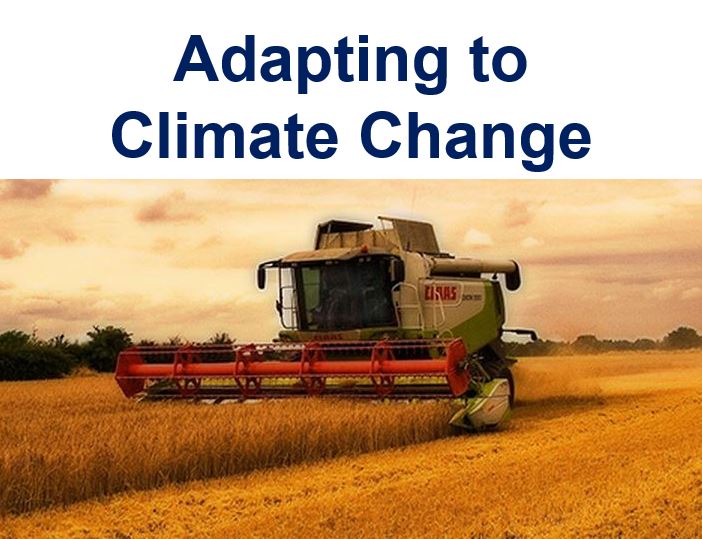Research should not focus just on the impact of climate change, but also how its effects may be exacerbated by the measures taken to adapt to global warming, which could add to the problems, researchers from the University of East Anglia (UEA) concluded in a new study.
The research findings, which were published in the academic journal Nature Climate Change (citation below), show that measures taken to adapt to climate change have the potential to add further pressures and threats to both local, regional and global ecosystems.
Lead researcher, Dr. Carlo Fezzi, who works at the School of Environmental Sciences at UEA, said:
“Climate change is a just a little bit more complicated than we previously thought. We need to take into account not only the direct impact of climate change, but also how people will respond to such change – the impact of adaptation.”

Steps taken to adapt to climate change could bring their own set of problems. (Image: University of East Anglia)
“This is a whole new dimension to the climate change adaptation debate.”
Dr. Fezzi and colleagues gathered and analyzed data on the interaction between agricultural land use and the quality of river water – both of which will be significantly affected by climate change.
They poured through over half a million records of river quality and land use covering the whole of Britain, dating back to the early 1970s.
Effects of agricultural changes on water quality
With the aid of computer models, the team predicted how climate change might lead to agricultural changes, and what effect these agricultural changes could have on water quality.
They found that a temperature rise of between 1°C and 3°C would have an overall beneficial effect on British agriculture, especially in the Eastern Uplands and Midlands, where greater crop yields would allow for more livestock.
However, there would also be some localized losses, especially in the East of England, where reduced rainfall would probably increase the risk of drought.
Dr. Fezzi said:
“This intensification in agricultural practices in response to climate change, however, will also create new environmental pressures. For example changes in the agricultural sector will have a knock on effect for water quality – because they will cause increased amounts of nitrates and phosphates in streams and rivers.”
“This will particularly impact the eastern uplands and midlands where temperature rises will allow significant increases in agricultural production. It will significantly increase the effort necessary to achieve water quality standards required by the EU.”
The multiple impacts of adaptation
Not only will water quality be affected by adaptation, but also water availability, biodiversity, carbon policies, wildlife, and the amount of recreation space.
Other sectors of the economy will also have to adapt to climate change, such as health services, energy production and demand, forestry, and fisheries. Each adaptation will create its own set of problems.
The researchers stressed that adaption is not necessarily a bad thing, and are in no way suggesting it should be discouraged. We just need to make sure that adaptations are done in an environmentally sustainable way, they explain.
Dr. Fezzi said:
“Climate change is a long-term process and science allows us to anticipate its impact on both the environment and society. This should encourage the development of forward-looking policies.”
“Instead of waiting for ecosystems to be in danger and then trying to save them, we can anticipate a potential problem and do something about it before it becomes an actual threat. Prevention is better than cure.”
Citation: “The environmental impact of climate change adaptation on land use and water quality,” Dr. Carlo Fezzi, Dr. Amii Harwood, Prof. Andrew Lovett and Prof. Ian Bateman. Nature Climate Change. DOI: 10.1038/nclimate2525.
